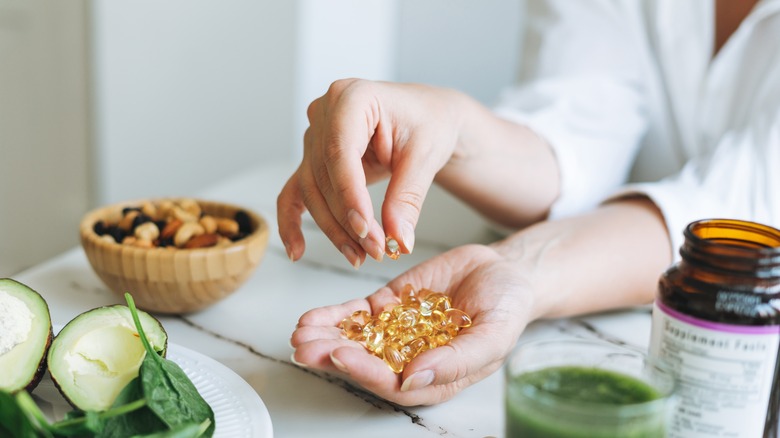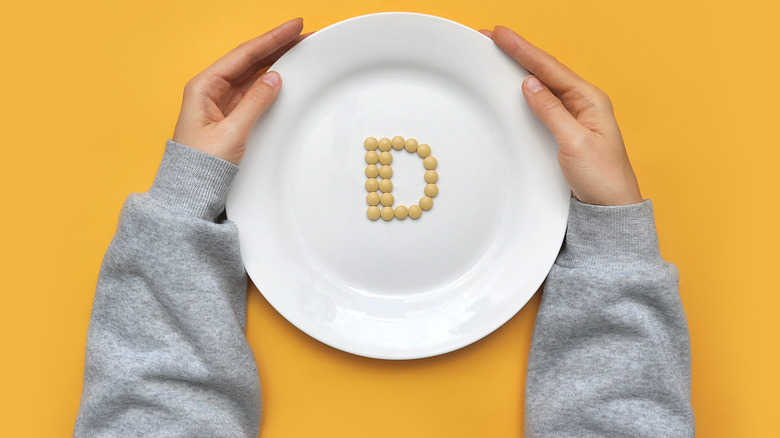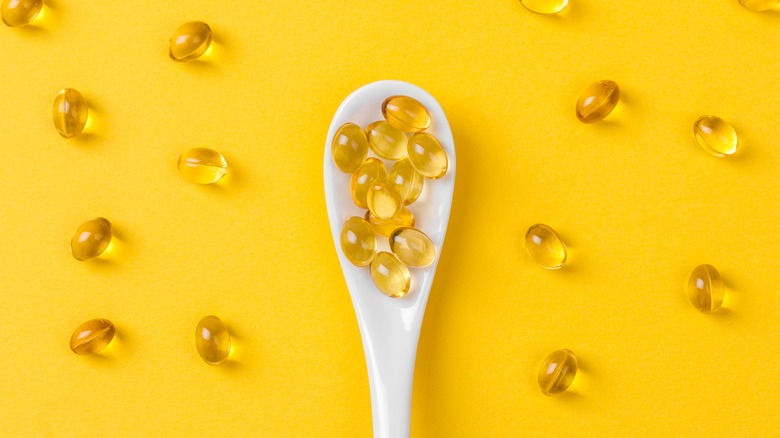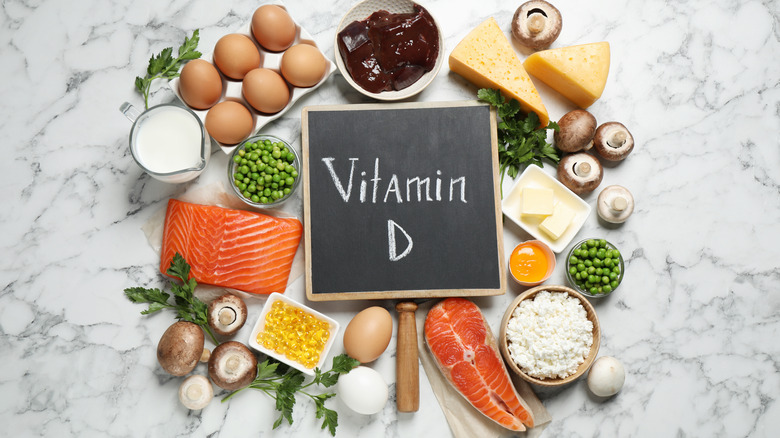What A Health Expert Wants You To Know About Vitamin D Supplement Overuse
Vitamins and minerals are essential nutrients that your body needs in order to perform its most basic functions. One important vitamin that your body cannot go without is vitamin D. Vitamin D has several important functions in various bodily processes that can greatly benefit your overall health (via Healthline). But how exactly can you increase your vitamin D levels?
As it turns out, most people get vitamin D and other similarly important nutrients through their diet. In fact, you can add more vitamin D to your diet by eating a variety of nutrient-rich foods or by taking supplements. However, your body also naturally produces vitamin D when you're exposed to sunlight. In an exclusive interview with Health Digest, Dr. Bill Rawls, MD, the Co-Founder and Medical Director of Vital Plan, tells us why vitamin D is so important and how much we need to consume on a daily basis — and how much is too much.
The health benefits of vitamin D
According to Dr. Rawls, vitamin D has many important functions and is associated with a number of key health benefits. "Vitamin D is essential for calcium absorption, but also is an important co-factor in many immune system functions," he shares. "In addition, it's important for regulating inflammation and cell growth." As a result, increasing your vitamin D levels can help strengthen your bones and teeth and even help your body fight off chronic disease and illness (via Healthline).
In fact, Healthline notes that research has shown how vitamin D may play a role in reducing your risk of heart disease, multiple sclerosis, viral infections, and autoimmune disorders. In addition, vitamin D may also help promote weight loss and regulate your mood. A vitamin D deficiency, on the other hand, can have a significantly detrimental effect on your body. As it turns out, not getting enough vitamin D can lead to fatigue, bone or muscle weakness, aches and pains, and even stress fractures.
The daily recommended intake of vitamin D
That's why it's important to make sure you get enough vitamin D on a daily basis. "The recommended dietary allowances for adults, according to the Food and Nutrition Board (FNB) at the National Academies of Sciences, Engineering, and Medicine (NASEM), are 600 international units (IU) daily," Dr. Rawls explains. However, this doesn't include the amount of vitamin D your body produces when exposed to sunlight. "Direct sun exposure to the face, hands, arms, and legs without sunscreen for 30 minutes is usually adequate to generate daily requirements of vitamin D," he says.
But if you live in a place with insufficient sun exposure, you might need to take supplements to increase your daily intake of vitamin D. If you're not sure if you're getting enough vitamin D through food and sunlight, your doctor can run a blood test to check your vitamin D levels, which can help determine whether or not you should be taking supplements. "During winter at northern latitudes, it is not uncommon for people to require doses of 5000 to 10,000 IU [of] vitamin D daily to maintain healthy vitamin D levels," Dr. Rawls shares.
The risks of taking too much vitamin D
However, getting too much vitamin D through supplementation can actually cause vitamin D toxicity. "Vitamin D is a fat-soluble vitamin that accumulates in tissues and can lead to calcium buildup in the body," Dr. Rawls says. This can cause a number of unpleasant symptoms, including nausea, vomiting, weakness, and a more frequent need to urinate (via Mayo Clinic). That being said, you would need to consume at least 60,000 IU of vitamin D a day for months at a time in order for this to happen. Sticking to the recommended daily intake and following the instructions on the supplement bottle, however, can help prevent you from taking too much.
When it comes to getting vitamin D from food and other natural sources, on the other hand, Dr. Rawls says there's nothing to worry about. "Concentrations of vitamin D in natural sources are not great enough in normally consumed quantities to cause toxicity," he comments. "Vitamin D production from UV light exposure is self-limited; when optimal levels of vitamin D are reached, production stops."
Natural sources of vitamin D
Fortunately, there are plenty of natural sources of vitamin D to choose from. In addition to sunlight, there are many foods that are naturally rich in vitamin D that you can add to your daily diet. According to Dr. Rawls, the best sources of vitamin D come from fish and fish oils. "Cod liver oil is the highest natural source of vitamin D, but other fish, such as salmon and trout, are also good sources," he explains.
In addition, dairy products and certain types of mushrooms are also great sources of vitamin D. "White mushrooms are a surprisingly good source of Vitamin D," Dr. Rawls shares. "Many food products, such as milk, are fortified with vitamin D." Other foods that contain vitamin D include egg yolks, fortified cereals, beef liver, sardines, tuna, and orange juice fortified with vitamin D (via Harvard T.H. Chan School of Public Health).
To learn more about Dr. Bill Rawls, go to vitalplan.com.





